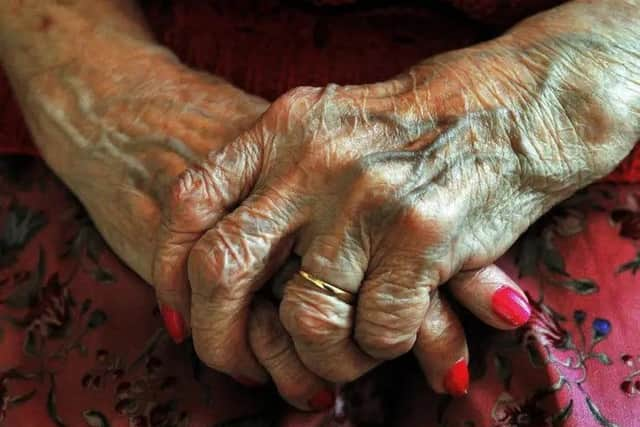Fewer over-90s in High Peak living with a disability
and live on Freeview channel 276
The Office for National Statistics said the decrease in older people stating they have a disability when the census took place in March 2021 could be due to the impacts of the Covid-19 pandemic.
The ONS figures show about 340 people aged 90 and older in High Peak said they had a very limiting disability – accounting for 44.4% of the age cohort.
Advertisement
Hide AdAdvertisement
Hide AdIt was down significantly from 68.1% when the previous census took place in 2011. A further 170 over-90s (22.2%) said they had a disability that was a little limiting, down from 24.1% a decade prior.


Across England, 44.3% of the oldest age cohort said they had a disability that limited them a lot - a fall from 66.5% in 2011. The proportion of older people saying they had a disability that limited them a little also fell from 24.2% in 2011 to 20.1% in 2021.
In Wales, 47.5% of people aged 90 years and older stated having a very limiting disability while 18.5% said they had a disability that was a little limiting.
The ONS noted a change in the wording of the census question may also account for differences.
Advertisement
Hide AdIt said for older age groups, the visible prompt in the previous census question “include problems related to old age” was removed in the 2021 version, with the possible result this might have reduced the proportion of older people who considered they had a condition or illness.
Advertisement
Hide AdJulie Stanborough, deputy director of data and analysis for social care and health at the ONS said the drop in older people who are disabled “may seem surprising”.
Ms Stanborough added: “Sadly, many disabled people died in the Covid-19 pandemic, which may be one of the reasons."
The census figures also show more women had a disability in High Peak than men. About 9,180 women (18.9%) said they had a disability in 2021 while 7,545 men (16.5%) did.
In England, 18.7% of women and 16.5% of men were disabled in 2021, while in Wales 22.3% of women and 19.8% of men were disabled.